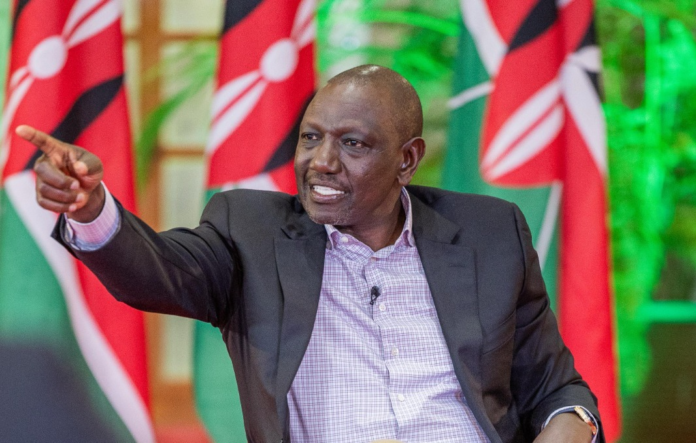In the lead-up to Kenya’s 2027 General Election, a new political force is emerging — the Gen Z voter. This generation, emboldened by digital activism and a growing dissatisfaction with traditional politics, is poised to disrupt the long-standing tribal and regional voting patterns that have historically shaped Kenyan elections.
The now-famous phrase “tyranny of numbers,” coined by political analyst Mutahi Ngunyi ahead of the 2013 elections, was a strategic projection based on ethnic blocs. It suggested that by consolidating votes from key regions, the Jubilee alliance led by then-candidate Uhuru Kenyatta could secure an easy win against Raila Odinga of the Cord coalition. This theory dominated the electoral landscape, reinforcing the idea that tribal arithmetic could determine the presidency.
However, twelve years later, the country’s political terrain is rapidly shifting. The Gen Z demographic — young, urban, and largely issue-driven — is emerging as a powerful bloc that could change the game. With more than 5.7 million new youth voters expected to be registered, presidential hopefuls have redirected their attention to this vibrant and unpredictable constituency.
According to the Independent Electoral and Boundaries Commission (IEBC), it projects to register an additional 5.7 million voters by 2027, most of whom will be young people turning 18. To prepare, the commission plans to roll out a new fleet of Kenya Integrated Elections Management System (KIEMS) kits worth KSh 7 billion and expand the number of polling stations to 55,393 — nearly 10,000 more than in 2022.
The government has already launched a school-based national ID registration initiative through the State Department for Immigration and Citizen Services. A circular signed by Principal Secretary Amb. Prof Julius Bitok confirmed that the drive, targeting secondary school students who have turned 18, will run through August 2025. The goal is not only to ensure early access to services like HELB loans and college admissions but also to prepare the youth for electoral participation.
Interestingly, early data suggests that regions previously considered vote-rich, such as Mt Kenya, are showing signs of voter base stagnation. For example, Mt Kenya counties collectively account for around 830,000 students in secondary schools — significantly lower than Western Kenya’s 2.3 million and Rift Valley’s 970,000. Nyanza stands at about 753,000 students. This trend could redefine regional voting power, especially if Gen Z voters lean away from tribal affiliations.
Some of the leading political figures have already acknowledged the Gen Z wave and begun tailoring their messages to resonate with the youth. President William Ruto’s administration has adopted a reconciliatory tone following recent protests. During the national prayer breakfast, Ruto directly addressed the youth, saying, “To our children, if there has been any misstep, we apologize.”
Former Chief Justice David Maraga declared himself the “Gen Z presidential candidate,” vowing to support and mentor young leaders. “I challenge each one of you to be champions of justice and accountability,” he told a youth gathering. “Stand fearless against a stubborn system that lures young minds into service for political cartels.”
Former Interior CS Fred Matiang’i also weighed in, urging young people to go beyond protests and channel their activism into voter registration and civic participation. “True impact lies not just in protest, but in participation,” he said.
Other key leaders, including Wiper Party leader Kalonzo Musyoka and former Deputy President Rigathi Gachagua, have praised Gen Z for leading a national awakening on accountability and governance. Kalonzo called them “the true heroes and heroines of the year,” while Gachagua encouraged them to register in large numbers and assured them that the 2027 elections would not be rigged.
As IEBC seeks KSh 61.7 billion to fund its operations through 2028, it is clear that a generational shift is underway. The Gen Z voter could be the deciding factor in 2027 — not because of tribal allegiance, but because of their shared frustrations, demands for transparency, and desire for change.
If the electoral landscape remains stuck in ethnic-based voting patterns, the result in 2027 may still echo the past. But with millions of new young voters entering the fold, and regional vote counts beginning to shift, the next presidential election could mark a turning point in Kenya’s democratic journey.







